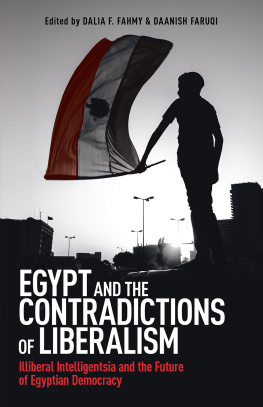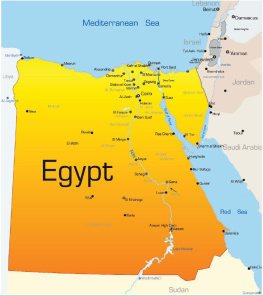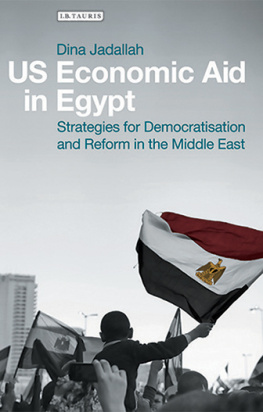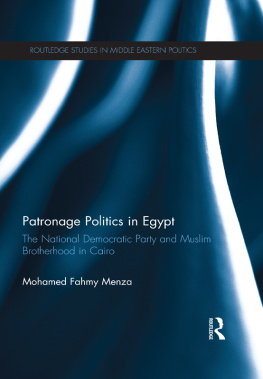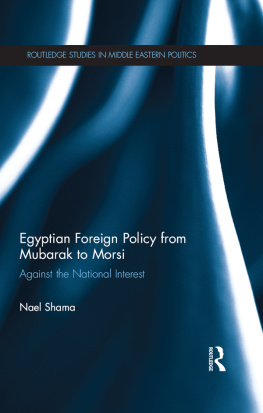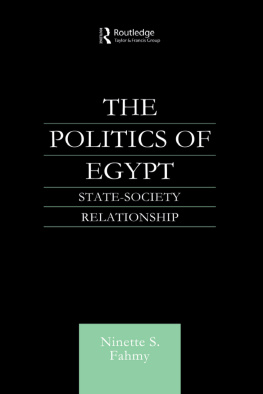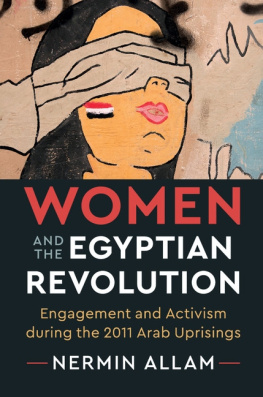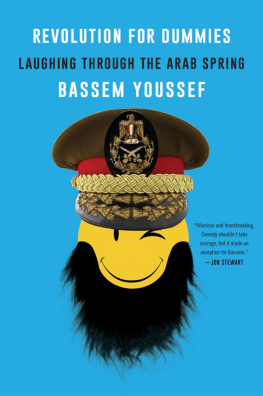Praise for Egypt and the Contradictions of Liberalism
I read Egypt and the Contradictions of Liberalism with a sigh of relief that understanding one of the most significant events in our contemporary history is in the caring and competent hands of some seminal critical thinkers. Dalia F. Fahmy and Daanish Faruqi have brought together a formidable volume challenging what they aptly call Illiberal Intelligentsia and gauge the future of the Egyptian democracy beyond and through their historic failures. What the community of critical thinkers gathered in this volume discover and discuss is no mere indictment of the Egyptian liberal intellectuals and their catastrophic failure at a crucial historic juncture, but something far more deeply troubling in the very nature of unexamined globalized liberalism. The result is a fiercely radical constellation of critical thinking indispensable for our understanding not just of Egypt and the rest of the Arab and Muslim world, but in fact the very legacy of liberalism in the 21st century.
Hamid Dabashi, Hagop Kevorkian Professor of Iranian Studies and Comparative Literature, Columbia University
This edited volume is an essential contribution towards understanding the current state of affairs in Egypt. The different chapters offer a sense of the underlying dynamics at work within Egyptian society (among the military, the Muslim Brotherhood, secularists and the youth). The reader is invited to consider the complexity of the situation and what it will take for Egyptian people to find their way towards freedom and justice.
Tariq Ramadan, Professor of Contemporary Islamic Studies, University of Oxford
An extraordinary and wide-ranging exploration of the Arab Springs excitement and reversal in Egypt. Compulsory reading to grasp the role of Islam, secularism, authoritarianism and liberalism in contemporary Egypt.
Ebrahim Moosa, Professor of Islamic Studies, Keough School of Global Affairs, University of Notre Dame
The question of democracy in Muslim societies has generated heated debate on the role of mainstream Islamist parties and democratization. Can they moderate their views? Will they respect electoral outcomes? Are they committed to political pluralism? The same questions, however, have been rarely asked of liberal and secular forces who occupy the same political space. This is precisely what is unique about this book. Focusing on Egypts Arab Spring democratic transition, it examines the political behavior of Egyptian liberals during the transition period and after the 2013 military coup. In doing so, the editors and contributors make an important and exceptional contribution to understanding both the persistence of authoritarianism in the Arab-Islamic world and the obstacles to democracy. It is a must read volume that challenges stereotypes and deepens our grasp of the politics and societies of the Middle East.
Nader Hashemi, Director of the Center for Middle East Studies,University of Denver, and author of Islam, Secularism, and Liberal
Democracy: Toward a Democratic Theory for Muslim Societies
The heroic events of January and February 2011 seemed at first to rewrite the rules of Middle Eastern politics. One of the longest ruling autocrats in the Arab World fell not to a military coup, an assassination, or violent uprising, but to the immovable presence of the people demonstrating in public. The Tahrir Revolution was liberal in the sense that its demands were for freedom, the rule of law, and social justice. Its promise was that these goals seemed to reflect a shared will uniting the secular and the Islamist, the masses and the middle class. Two short years later that promise was shattered in a supreme act of anti-political, counterrevolutionary violence. How did many Egyptian liberals, who two years earlier stood side by side with Islamists against Mubarak in Tahrir, and one year earlier voted for Morsi for President, come to side with a return to military dictatorship over constitutional politics? Egypt and the Contradictions of Liberalism brings together many of the best scholars on Egyptian politics to answer just this question.
Andrew F. March, Associate Professor of Political Science, Yale University, and author of Islam and Liberal
Citizenship: The Search for an Overlapping Consensus
A Oneworld Book
First published by Oneworld Publications, 2017
This ebook edition published 2017
Copyright Dalia F. Fahmy and Daanish Faruqi, 2017
All rights reserved
Copyright under Berne Convention
A CIP record for this title is available from the British Library
ISBN 978-1-78074-882-5
eISBN 978-1-78074-883-2
Typeset by Silicon Chips
Oneworld Publications
10 Bloomsbury Street
London WC1B 3SR
England
Stay up to date with the latest books, special offers, and exclusive content from Oneworld with our monthly newsletter
Sign up on our website
www.oneworld-publications.com
To the people of Egypt
Contents
I n bringing this volume to completion after nearly two years of deliberation, design, and ultimately implementation, we as editors have become further emboldened in our core belief that undergirded the project when we first conceived it: that a topic as delicate as the contradictions of liberalism in Egypt necessitated a collaborative effort. Indeed, we cannot fathom the insights of this work having been properly articulated in a single-authored monograph; the breadth of the topic required casting a wider net than any one scholar or disciplinary perspective could possibly stand to offer. In that sense, we are deeply indebted to each of our contributors. As experts in a varied array of disciplinary perspectives, each offered insights that proved fundamental to the broader aims of our intervention, without which this book would have been wholly inadequate and incomplete. We are thus honored to have had the opportunity to partner with each of our distinguished colleagues. We were especially appreciative of the opportunity to have presented the broader theme of the book alongside a group of our contributors at a panel at the 2015 meeting of the Middle East Studies Association, and are thankful for the commentary and feedback we received from colleagues there key among them from Stuart Schaar, a stalwart supporter of our project from its conception.
We would further like to express special thanks to Khaled Abou El Fadl as our series editor. Even when our project was at its most rudimentary conceptual stage, Dr. Abou El Fadl immediately proved deeply supportive of our vision, and spared no effort to work with us to refine the rough contours into a finished product. We are equally indebted to our remarkable team at Oneworld Publications, notably Novin Doostdar, Jonathan Bentley-Smith, and Paul Nash. From the submission of our original manuscript, they have proven deeply attentive to every aspect of our books production, and it has been a pleasure to have worked with a publisher so dedicated to the success of its authors.
While both of the editors are united by a deep love for and dedication to umm ad-Dunya , we also remain cognizant of the clear idiosyncrasies of each of our approaches and experiences one a political scientist whose primary area of research has been, and continues to be, Islamist movements in Egypt, the other a historian of Islamic political thought whose work has in recent years veered away from Egypt proper but who out of conviction forcefully returned to debates he originally inaugurated while beginning his career in Egypt some eight years ago. Accordingly, we felt it appropriate to augment our collective acknowledgments above with separate words of recognition for those who made our project possible.

